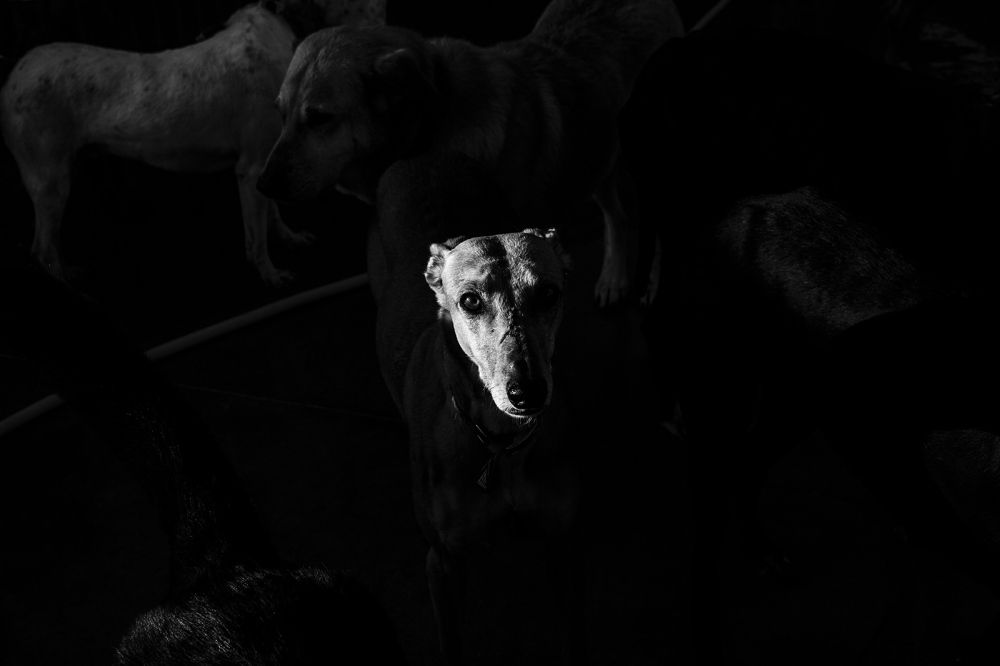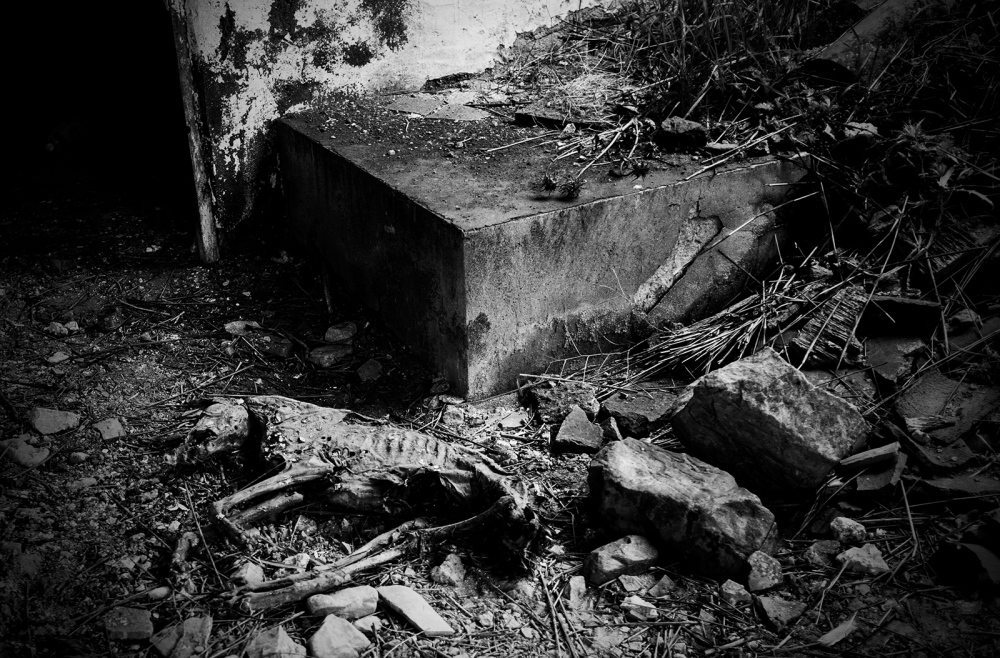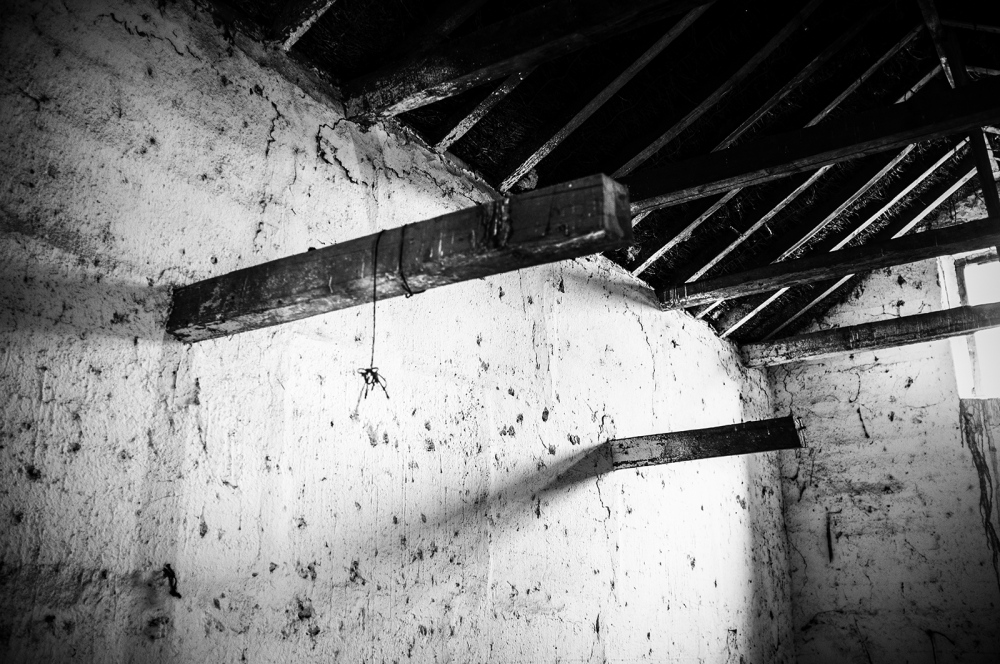Public Story
Scars. Surviving being a greyhound. / Cicatrices
Copyright
David Arribas
2024
Date of Work
Dec 1969 - Ongoing
Updated Sep 2020
Topics
abandon, Abandonment, Abuse, Adoption, Animal Abuse, Animals, Black and White, Documentary, dog, Dogs, Dying/Death, Editorial, game dog, greyhound, greyhound racing, gun dog, hang, hanging, Hunting, Mistreatment, Photography, Photojournalism, refuge, run, rural, scars, shelters, Sorrow, Temporary reception house, Violence
Scars. Surviving being a greyhound.
Spain is one of the few countries where greyhound hunting is a legal practice. What was long ago a livelihood for rural families now, in decline and far from being a vital activity, has been converted into sport, framing it within the cultural tradition of the country to ensure its prevalence. The dogs that the “galguero” (greyhound owner) considers unfit for hunting are discarded throughout the year, especially in October and February coinciding with the beginning and end of the hunting season. A small number are transferred to Animal Protection Centers and particular associations throughout the country, but massive abandonment continues to be the usual discard procedure. In the worst of cases, they are killed using highly cruel practices such as hanging or being thrown into wells and fosses.
According to data estimated in the Affinity Foundation report, published in 2022, 168.000 dogs were collected, many of them without chip identification, by shelters and protectors who participated in their study. The abandonment of dogs at the end of the hunting season is the second most important cause, after unwanted litters. In Spain there is no law on the control of breeding and anyone can have an undetermined number of dogs. The social perception that this situation is a black legend and that it does not happen at present, where the crossing of data between protectors and shelters contrasts with the data used by hunting associations and official institutions such as the Civil Guard, aggravates the situation.
Shelters provide support for as many of these animals as possible, who often arrive in appalling physical conditions (that they will pay from their own funds) with fears and sequels that sometimes will be difficult to overcome because of the terrible conditions in which they have lived. All this added to the problem of overpopulation that these entities have and the difficulty in officiating the adoption of animals with injuries in adulthood.
Ciudad Animal is a shelter for dogs and cats in Ciudad Real (Castilla la Mancha) in 2022 of the 180 dogs of capacity that have in their facilities 90% are greyhounds. It develops its work thanks to the help of volunteers and protectors that from Germany support them and welcome a great majority of dogs for their adoption.
Vicente belongs to one of the 14 rescue teams of SOS Rescue, whose main work in several autonomous communities, is in the street collecting with trap cages abandoned dogs in areas where volunteers have previously created a routine with food in the animal for capture. These groups also take care of shelters, residences and veterinary bills for the rescued animals. Of the last dogs rescued by Vicente in March 2022, the vast majority were greyhounds, the previous year he rescued more than 800 dogs.
Spanish legislation, which is not very severe in terms of the animal section, with sentences of less than 24 months, where the individual will not go to prison if he does not have a criminal record. It allows this situation to continue developing each year, increasing the number of cases of abandonment since 2015. As an example, in 2023, the Spanish government passed the animal welfare law, where hunting dogs, among others, were left out of the same law.
Microchip identification, legislative control over animal husbandry, sterilization as a method of population control, and adoption are important strategies for preventing abandonment. But there is a need for collaboration between the public administration and private entities as well as support in citizen education of responsible care to avoid abandonment in the long term. It is essential to understand the obligations and advantages of adopting animals and how your company can influence our lives.
Photography and text David Arribas
Text, edition and Translation Clara Muro
Cicatrices. Sobrevivir siendo un galgo.
España es el único país de la Unión Europea donde la caza de liebres con galgo es una actividad legal. Lo que antes era una forma de sustento para la familia en las zonas rurales, ahora (cuando su empleo no es vital) se ha reinventado y convertido en deporte, preservando su práctica dentro de la tradición cultural del país.
Al final de la temporada de caza (en febrero) y durante todo el año, los perros que no son útiles para la caza, ya sea por lesión, falta de competitividad o edad, son abandonados o, en el peor de los casos, eliminados mediante prácticas a veces muy agresivas como el ahorcamiento.
Según datos estimados en el informe de la Fundación Affinity, publicado en 2022, 168.000 perros fueron recogidos, muchos de ellos sin identificación por chip, por refugios y protectoras que participaron en su estudio. El abandono de los perros al final de la temporada de caza es la segunda causa más importante, después de las camadas no deseadas, en España no existe una ley sobre el control de la cría y cualquier persona puede tener un número indeterminado de perros. La percepción social de que esta situación es una leyenda negra y que no ocurre en la actualidad, donde el cruce de datos entre protectoras y refugios contrasta con los datos utilizados por las asociaciones de cazadores e instituciones oficiales como SEPRONA, agrava la situación.
Los refugios proporcionan apoyo al mayor número posible de estos animales, que a menudo llegan en condiciones físicas deplorables (que pagarán con sus propios fondos) con temores y secuelas que a veces serán difíciles de superar debido a las difíciles condiciones en las que han vivido. Todo esto se suma al problema de la sobrepoblación que tienen estas entidades y a la dificultad de oficiar la adopción de animales con lesiones y en edad adulta.
Ciudad Animal es un refugio para perros y gatos en Ciudad Real (Castilla la Mancha) en 2019 de los 180 perros de capacidad que tienen en sus instalaciones el 90% son galgos. Desarrolla su trabajo gracias a la ayuda de voluntarios y protectoras que desde Alemania les apoyan y acogen a una gran mayoría de perros para su adopción.
Vicente pertenece a uno de los 14 equipos de rescate de SOS Rescue, cuyo trabajo principal en varias comunidades autónomas, es la recogida en la calle con jaulas trampa de perros abandonados en zonas donde previamente los voluntarios han creado una rutina con comida en el animal para su captura. Estos grupos también se encargan de los refugios, las residencias y las cuentas veterinarias de los animales rescatados. De los últimos perros rescatados por Vicente en marzo de 2022, la gran mayoría eran galgos, el año anterior rescato más de 800 perros.
La legislación española, que no es muy severa en cuanto a la sección de animales, con penas inferiores a 24 meses, donde la persona no irá a la cárcel si no tiene antecedentes penales. Permite que esta situación siga desarrollándose cada año, aumentando el número de casos todos los años. Como ejemplo, en 2023 el gobierno del Estado Español, aprobó la ley de bienestar animal, donde los perros de caza, entre otros, quedaban fuera de esa misma ley.
La identificación con microchips, el control legislativo sobre la cría de animales, la esterilización como método de control de la población y la adopción son estrategias importantes para prevenir el abandono. Pero es necesaria la colaboración entre la administración pública y las entidades privadas, así como el apoyo en la educación ciudadana de la atención responsable para evitar el abandono a largo plazo. Es esencial entender las obligaciones y ventajas de adoptar animales y cómo su compañía puede influir en nuestras vidas.





































